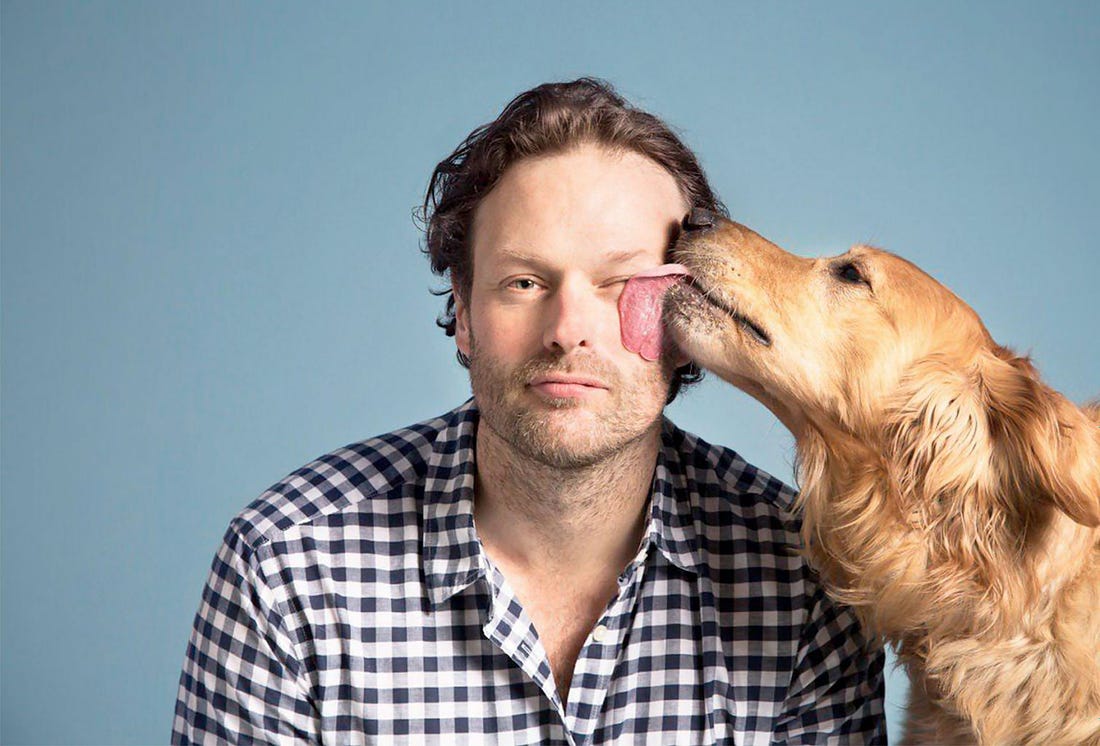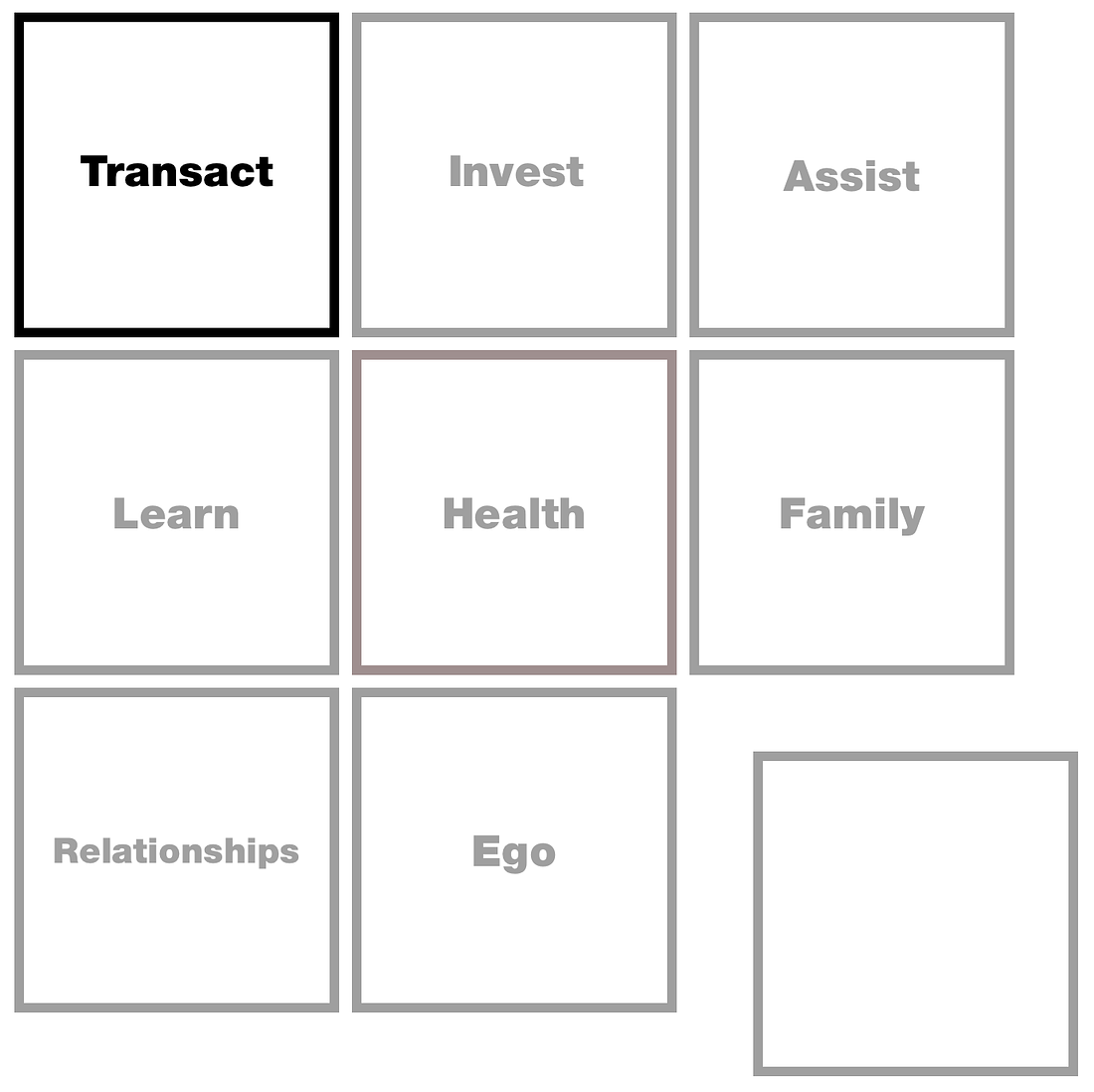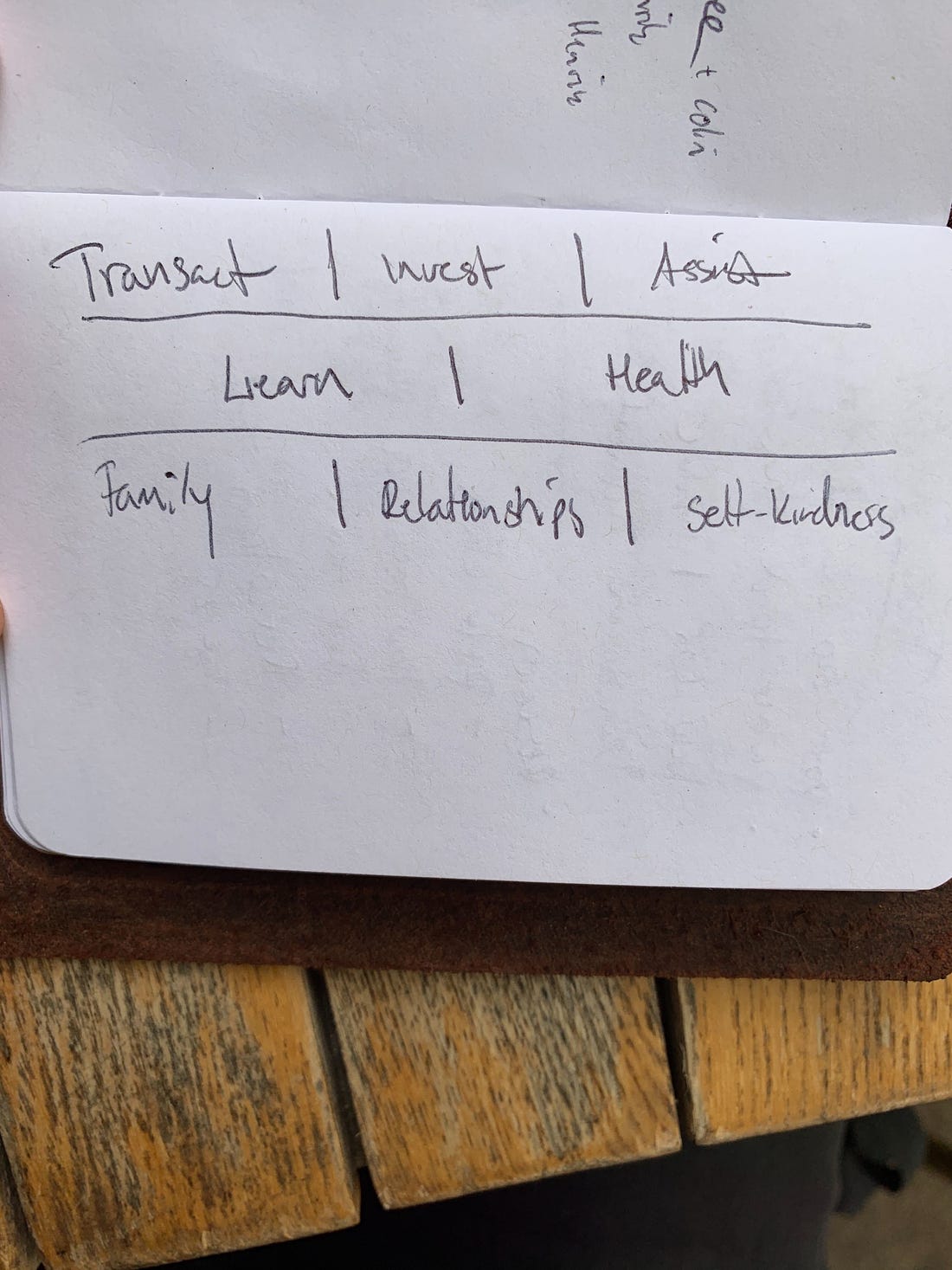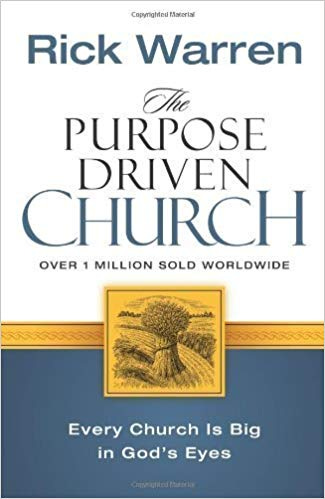The Quest to Be Good at Everything
(story was written by Dan Shipper - check is site Super Organizers)
The co-founder of Bark reveals the systems he uses to manage two growing businesses and a family
Welcome to another issue of superorganizers! We explore how the smartest people in the world organize what they know to do their best work.
If you’re not a subscriber, you can get more interviews like this in your inbox by clicking here.
Henrik Werdelin seems like he has it all figured out.
He’s a co-founder of Bark, a business with over 650,000 subscribers and hundreds of happy employees. He runs prehype, a venture development firm that has helped start businesses like Roman ($176mm raised) and Managed By Q (acquired by WeWork.) He runs a podcast. He teaches entrepreneurship to university students. And he’s a husband and father to a young son.
With a list of commitments like that, it’s pretty easy to wonder: how the hell does he do it all?
And that’s something I’ve personally been wondering for a while as I’ve gotten to see him work up close: prehype‚ the firm he’s built as a home for second-time entrepreneurs, has become a home for me too — and the place I get to explore weird side-projects (like this one!) without pressure or a timeline.
I’ve always been amazed at how much he gets done in a day, so getting to spend time unpacking his system was eye-opening. Here’s what we talk about in this interview:
- How his 8 + 1 system allows him to manage running two companies, teaching, running a podcast, and spending time with his family
- How he hacked his Google Home to help him record those little thoughts that hit right as he’s going to sleep
- How he met his wife and life partner
- How thinks he about creating a purposeful and highly conscious life
- How he uses experimentation to constantly improve himself
- How he uses Trello and paper notebooks to keep himself organized
Let’s dive in!
Tell us about who you are
I build things with people I like in interesting spaces. I have built a number of businesses as a co-founder, and I also run a network of entrepreneurs called prehype where we build new businesses and teach entrepreneurial skills.
I keep myself organized and productive with what I call the 8 + 1 system. It’s composed of eight categories that are important to me in my life that I try to pay purposeful attention to. The categories are:
- Transact
- Invest
- Assist
- Learn
- Health
- Family
- Relationships
- Ego / Self-Kindness
The idea is to think of each category as a box, and different activities in my life fit into one or more boxes. I want to make sure each box is as close to filled at all times as possible.
Why he developed this system for himself
I do this for a few reasons. Because I’m running two companies, I teach, I have a number of active angel investments, and I have a family, I have a lot of demands on my time. So I’m always nervous I’m missing something. Having a system like this helps me make sure that I’m always on top of my commitments.
It helps me figure out what to do, and also what not to do. And figuring out what not to do, I find, is just as important as the opposite.
Because for me, I’m interested in and excited by lots of different things — so this gives me a chance to sit down and reflect on whether or not they’re a good idea. If something doesn’t fit into these boxes, it doesn’t fit into my life.
So it allows me to be purposeful and conscious about how I’m spending my time. I think a lot of times we do things because we’re conditioned to do them, rather than because we’ve chosen to do them. So having a system like this allows me to be conscious about breaking out of that conditioning and spend my time wisely.
Another really important part of this is that it allows me to try new ways to improve my life. I think a lot about using experimentation to maximize the return on my effort. Having this system allows me to make sure that I’m constantly experimenting and trying new things in each of these boxes to improve my performance.
On trying to be excellent in every area of his life, rather than just one area
Finally, the 8 + 1 system codifies something a little bit contrarian about me which is that rather than aspiring to be good at one particular area of my life, I aspire to be as good at all areas of my life as I can be.
Being good at all of these areas represents for me, what I think is the best version of myself.
To be clear, that’s not necessarily right or wrong. I think a lot of people want to be good at just one thing, which I think is great. They’ll probably be better at that one thing than I am at it. Neither option is necessarily better.
It’s just the one that I happen to subscribe to.
So let’s talk about each of the boxes and how they work together to help me live my life.
Box 1: Transact
The first box in the 8 + 1 system is Transact, and it’s about making money.
Transact is just making sure that you have a job, or advisory gigs, or something that’s bringing in a direct revenue stream to support your life.
This may seem obvious, but I think for me, particularly in startups, there’s a focus on doing things that don’t necessarily have any immediate-term payoff. So it’s worthwhile for me to make sure that I’m bringing in enough money to support my family and myself.
Box 2: Invest
The second box is Invest, and it’s really about doing things where my input today compounds over time.
Right now, Invest is pretty straightforward because I do seed investing. But it can also be broader than just investing money. For example, I spend a lot of time thinking about how to invest in building a reputation in a particular area so that I’m seen as an expert.
Or, at the earliest stages of a company, you may invest your time for free with the idea that that input leads to greater output as the company matures.
The idea is that as I pour input into Invest over time — either in terms of money or time or effort — eventually the results of that input will compound over time until I’m able to move whatever it is into the Transact bucket and reap some of the monetary rewards.
Box 3: Assist
The third box is Assist, and it’s about helping people. It’s something I do anyway, but I want to become better at it. Having it as a bucket makes sure that I’m purposeful about doing more assisting, and getting better at it.
Assist can be anything from writing a book to providing feedback to founders who are just starting out.
Box 4: Learn
The fourth box is Learn. This box is about being very self-aware of what my output is, and then figuring out what I need to learn to become better at providing that output.
For example, one of my outputs both at Bark and prehype is knowing how new technology is going to affect our business. Once it became clear that AI and machine learning were going to significantly change the business landscape over the next 10 years, I hired a tutor to help me learn about machine learning from the ground up.
So over a few months I learned about the most popular machine learning techniques, and even built a few prototypes myself to try to understand things as deeply as possible.
Doing stuff like that, in addition to reading a lot, is how I make sure my Learn box is always filled up.
Box 5: Health
The fifth box is Health.
To make a computer metaphor: your body is your hardware, and your mind is your software. So if your body or your mind breaks down everything else breaks down.
I use this box to help me be focused on trying to invent new methods to improve my health.
At its most basic that means I strength train twice a week, I try it to do cardio twice a week, and then I meditate every day.
But I’m constantly trying to find ways to stick to that routine, and to add things on top of that to give me more benefits.
For example, I have what I would define as a constant search for an optimal eating protocol. I don’t think it’s necessarily about losing weight, it's about building an infrastructure around myself with regards to food that I can comply with, because I always have a tough time keeping my weight steady.
That means I spend a lot of time experimenting with new things: anything from intermittent fasting, to understanding microbiome, you know, all the way down to wearing a glucose monitor to understand how my specific metabolism reacts to specific types of foods.
Have any of those health experiments had a significant impact for you?
I think so, but it comes down to stacking small wins over time
For example, I found that by wearing an OURA ring which tracks sleep, that my quality of sleep is greatly influenced by the time I go to bed. And so by moving my bed time to 30 minutes earlier it created an outsized return for me on my sleep quality.
And so if you find five of those little wins a year, you can greatly increase your health over the long term — which has significant downstream effects on all of the other parts of my life.
Box 6: Family
The sixth box is Family. I have a wife and a kid, and I aspire to be a good husband and a good father. Having this as an explicit box makes sure that I’m being purposeful and conscious about achieving those goals.
One easy thing I do in the Family bucket is I go on a date every Friday night with my wife. And to make sure the dates are fun and interesting I run a Trello board where I save date ideas that I can use when I need them.
The other important part of the Family box is, of course, my son. So the Family box ensures that I’m carving out enough time to be with him, and ensures that we make the most out of that time.
Relationships
The seventh box is Relationships.
I grew up in Denmark, but I’ve lived all around the world. And I think where I differ from some of the people I grew up with is that while they stayed in the same place and are hanging with the same people, whereas I’ve traveled for most of my life.
And because of that I've been more of a social butterfly than most people. And think that’s helped me become better at what I do.
These experiences in new places have really cemented for me the importance of building and maintaining relationships. And that doing so takes conscious effort, just like everything else in your life: if you don't invest in relationships, they don't happen.
And so I have a list of people in my Contacts called “Interesting People.”
And I make a point out of trying to do something actively with them on a regular basis. So I’m a big fan, for example, of Jeff Raider, and so I organize man-dates between him and me.
To be honest, it’s often not your proudest moment, when you kind of go like, “Hey, I like you can we hang.” But I find that it’s very worthwhile.
I keep it in Contacts+. It sucks less than everything else.
Ego or Self-Kindness
The last box is Ego or Self-Kindness.
This box is about doing things for myself, and doing things that make me happy, and grateful, and creating moments for myself that I enjoy.
For example, I have this idea of micro-moments. And so one of the things that I do is every time I do something I enjoy, I try to note it. At first, I kept it in a document, but now I just do it mentally.
What I notice is that these micro-moments for me, are times when I’m in flow, or when I laugh uncontrollably, or when I smile.
I read all this happiness research that basically said that, if you win the lotto, or you get paralyzed, your happiness level returns to your baseline within a year.
And so I was thinking, well, if I can increase my happiness level by one or two percent year over year then that would be a lot over time. And so what I do is to try introducing more of the micro-moments where I smile, or laugh or feel in flow into my life.
For example, I really enjoy walking to work.
And so typically if you asked a person, “What’s going to make you more happy? Is it getting a pay raise, or selling your company?”
For me, those things would both make me happy. But I also know that something as consistently available as walking to work will also make me happy. So I make it my job to be purposeful about introducing walks to work into my week as much as possible.
Another thing I do in this bucket is a gratitude exercise which I guess is kind of weird because I'm not religious. But since I was a kid, I've been doing an evening prayer to whatever god. And at the end of that, I force myself every day to say three small things that I’m grateful for that happened that day.
And that could be something as simple grateful for doing this interview, or for getting to eat some amazing food. And I find that significantly benefits my mood and my happiness levels.
Plus One
The Plus One part of this is setting aside time every single week to go through each of the boxes and make sure that they’re filled up.
And this is really key, because this Plus One review time is what makes the system effective for me. It allows me to make sure I’m allocating my time appropriately, and is also the time where I come up with experiments to help me maximize my effectiveness in each one of the boxes.
For example, in a recent Plus One review time I realized that my playtime with my son on the weekend wasn’t as good as I wanted it to be.
Basically, I noticed that often we would always end up in his playroom playing with some of his toys. And to be honest I had started to get a little bit bored of it, and so I would start looking at my phone.
When I would do that, he would call me out on it, and then I would feel bad about it.
And so during my review a few weeks ago, I started to think about, “Well, what are other things we can do so we both have a good time?”
One idea I came up with as an experiment was buying this ping pong system you can put on top of your dining room table. And it turns out he really liked it. And I really liked it too because I love ping pong.
So what this system does is it takes a suboptimal situation where I was disengaged with my son, allows me to realize that’s something’s wrong, and then helps me experiment until I can create a new situation that’s fun and exciting for both of us.
Using a physical notebook for reviews
I usually do this in a physical notebook that I carry around with me.
So I get a small notebook that’s not a big deal to lose. And I organize it by major areas of responsibility in my life: one page is for Bark, one page is prehype, etc.
I takes me probably ten days to two weeks to go through the book, and then I archive it. But before I do, I go through the previous notebook and find all the best stuff and put that in the new notebook.
This way I end up with a distilled version of all the thoughts in the last book. And I think there's something interesting in the cost of rewriting things down — if I’m willing to bear that cost, then the idea is probably worth something.
Now, if it doesn't go in the new notebook, then it goes into one of my other systems. And so the biggest all system is the mother of all Trello boards. So nothing enters my brain without being in my Trello Board.
How he uses Trello
The other thing that I use aside from my paper notebooks is Trello. Pretty much every thought that comes into my mind will get into Trello.
It gets into Trello in one of two ways: NoteToSelf Mail or Google Home.
NoteToSelf Mail is a little app that I have on my home screen that lets me really easily send an email — and hooked up to Trello so that when I press “Send” the contents of the email get added into my Trello board.
With the Google Home, that’s something I hacked together. Basically, I have a No Technology Allowed policy in my bedroom except for my Google Home. But I hacked it so that I can say, “Hey Google, add task” and it will automatically add something to my Trello board using an IFTT task.
I find that most of my best ideas come just before I fall asleep, and just when I wake up. So this is the way I capture it since I don’t have my phone.
Why he uses this system in his life
If we define productive as a way of optimizing the outcome of you spending resources on something, then I think it's more so the complete productivity obsession across the board of your life.
And so for me, it's about if I can spend a few hours a week, creating systems that allow me to solve all the problems in my life in a scalable away, then I require much less cognitive load when I'm then met with them.
I don’t think it would be possible to do the things that I do every day without having these systems.
I think having systems like this prevents problems from materializing because I am in front of them. Like, you don't want to solve relationship problems, you want to make sure they never actually occur.
So it can be difficult to be thoughtful when you’re in the midst of things, and I think this allows me a scaffolding structure for being purposeful and cognitive about my life.
I think in many ways that this system thinking facilitates me to be engaged in much more stuff than I otherwise could.
How process and experimentation leads to better outcomes
The thing I would stress is experimentation within these eight boxes is really important. You need to force yourself to keep experimenting.
I'm excited that you’re writing this because I often think I'm one of the few people who think like this. And so as with many things, it's amazing when you suddenly realize that a lot of other people are seeing the world in the same way.
And I think that the more that we can share these things the better, because these are not zero sum games.
I just sometimes worry about people thinking I’m crazy. But at the end of the day, we create systems for everything else. So why not why not do it for the things that are important for us?
His process even extended to the most important relationship in his life — meeting his wife
It's like, when people tell you know, I'm looking for someone to get married to, I’m like, “Well what's your process for that?” This is the most important decision in your life, and you need to think about it in a purposeful way. You need to have a strategy.
My strategy to meet my wife was to map everybody I’ve ever met that I really liked where I felt like I agreed with their value set.
And I organized dinners where I invited them and asked them to invite their single friends. And my thesis was basically that serendipity would be a good proxy for likemindedness.
On the second dinner I met my wife.
One book recommendation
I would recommend The Purpose Driven Church by Rick Warren. I think there are a lot of similarities between building a company and creating a church. So the metaphors and examples that Rick Warren uses are very relevant and interesting, even if you’re not religious.



